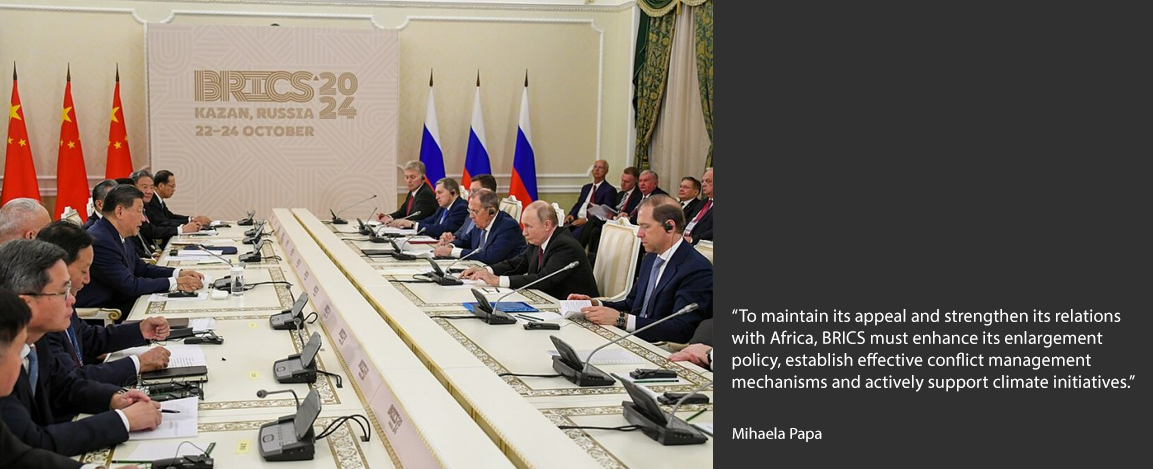CIS director of research and principal research scientist Mihaela Papa explores how the group’s evolving strategies have increased global demand for membership.
Amid escalating tensions in the Middle East and Ukraine, shifts in the global economic order, and debates about the future of international institutions, BRICS has drawn increased global attention as a significant player in global governance. In August 2023, during South Africa's presidency, 40 countries expressed interest in joining BRICS, and 23 submitted formal applications. Continuing this trend, the 2024 BRICS Kazan summit marked a pivotal moment, bringing together heads of state from Brazil, Russia, India, China and South Africa with leaders from newly added countries–Egypt, Ethiopia, Iran, and the United Arab Emirates–as part of one institution. Even before fully acclimating these new members, BRICS saw 34 more countries express interest in joining. However, at the summit, only 13 countries were invited under a new partner category, leaving some aspirants disappointed.
Demand for BRICS is at an all-time high, symbolising broader realignments in international relations. Yet the key question remains: What is attracting countries to BRICS, and can the group sustain its appeal?




